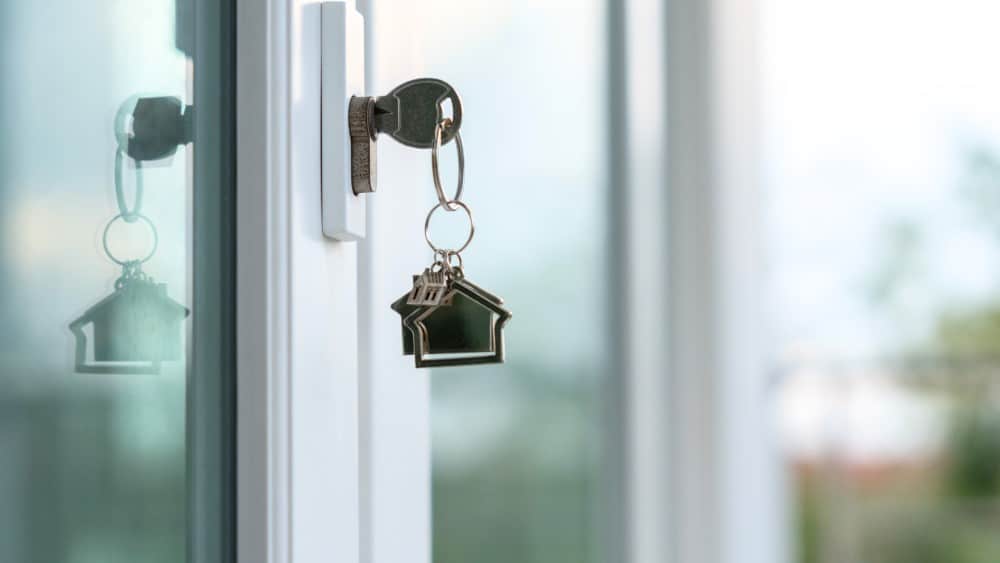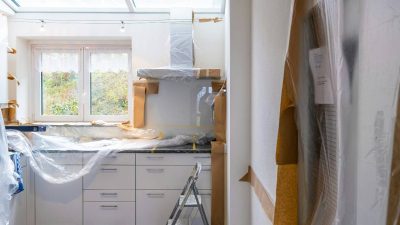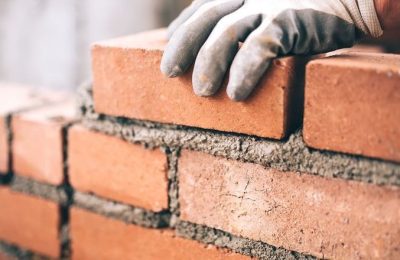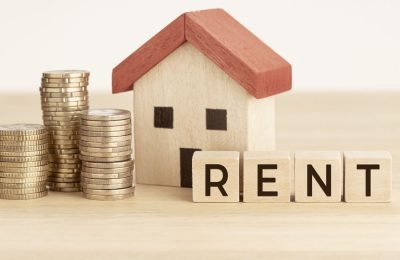The Repairing Standard is in place to ensure that the property or properties of private landlords meet the minimum physical standard of repair. The recent updates, enforceable since 1st March 2024, introduced changes concerning the common areas of tenement buildings, requiring collaboration and consent amongst owners to implement. This includes ensuring safe access to common parts, safe and secure common doors, and a minimum level of lead in the water supply.
Safe access and secure common doors

© shisuka via Canva.com
Landlords of tenement flats must guarantee tenants’ safe access to and use of common areas, such as the common close, common stair, common lift, bin stores, and drying areas. As part of this guidance, there must be adequate lighting, safe paths and ramps, and common spaces must be kept reasonably clean and tidy, and free from obstructions. Additionally, any mechanical component required to make use of the space must be in good working order.
Moreover, common doors must be secure, fitted with satisfactory locks, and designed for easy exit during emergencies: locks must allow users to open them from the inside without a key so that they do not inhibit exit in the event of a fire. The common front door must have a secure entry system that signals visitor arrivals or deliveries and enables the tenant to open it remotely.
If the block of flats is three or fewer and all occupiers have easy sight of or close access to the common front door, a secure entry system is not required.
The updated guidance also specifies suitable lock types for common front doors as follows:
- Mortice locks (any number of levers);
- Rim-type deadlocks;
- Yale locks;
- Key operated multi-point locks;
- Electronic/magnetic locks.
For common rear doors, locks must be of the same type as required for common front doors or comprise one or more substantial bolts secured from the inside.
Lead in water

© towfiqu barbhuiya via Canva.com
As part of these updates, landlords must also ensure that their property or properties have a satisfactory and adequate supply of drinking water. This supply must also comply with water quality regulations and have no more than 10 micrograms of lead per litre of water.
Since the ban on lead pipes in 1970, it is only necessary for landlords of properties constructed before 1970 to test drinking water outlets for lead. If your property was built after the ban, you do not need to carry out this test. If unsuitable levels of lead are found in the water supply, the source must be traced, and any lead tanks or pipework should be removed or replaced.
If lead is present in the property’s water supply and the source is confined to the individual property, addressing it would constitute an individual repair. However, if the lead source is traced to the building’s common areas, it is likely to be considered a common or mutual repair. In such cases, informing and obtaining consent from other owners in the building is necessary for the work to proceed.
Common repairs and proper procedures

© davidhills from Getty Images Signature via Canva.com
If repairs or maintenance necessary to comply with the Repairing Standard are regarded as common or mutual, such as installing a door entry system or replacing lead pipes in the building’s common areas, collaboration among owners in essential. Adhering to proper procedures during the organisation of such work is crucial, especially if external assistance from your local council or legal action becomes necessary.
As a first point of call, check your property titles to confirm who is likely to be responsible for the work required and understand the rules and obligations for your building. If your titles lack the required information, such as who is responsible for the maintenance of common doors, refer to the default rules in the Tenements (Scotland) Act 2004 for that issue only.
Once you have determined who is responsible, ensure all owners are contacted before commencing work. It’s imperative to inform all owners of the required work in advance. Keeping a record of communications with your co-owners is also essential in case disputes arise and a decision to carry out the work cannot be reached.
For common repairs regarded as maintenance under the Act, a majority vote of all owners is needed to proceed with the work. Hold an owners’ meeting to reach the decision collaboratively, ensuring all responsible owners are informed and involved in the process. Again, keep detailed records of all owners’ meetings for future reference.
Acting reasonably
Following proper procedures and maintaining records of doing so becomes even more vital when ensuring compliance with the Repairing Standard. This allows you to demonstrate the reasonable steps taken to address necessary repairs if a tenant files an application with the Housing and Property Chambers First-tier Tribunal for a breach of the Repairing Standard.
With the updates to the Repairing Standard, Section 16 of the Housing (Scotland) Act 2006 now provides further clarification to landlords’ duties. It specifies that a private rented flat within a tenement will not fail the Repairing Standard if work needed to comply cannot proceed due to a majority of tenement owners withholding consent. For example, if you are unable to obtain majority consent to install a door entry system, you will not fail the Repairing Standard.
Working with co-owners can present challenges, particularly if they are owner-occupiers exempt from the same obligations as landlords. To maintain amicable relations, approach these repairs with care and understanding of owners’ diverse circumstances. Individuals’ personal and financial situations can vary and not everyone will be in a position to contribute to such repairs. Your local council may be able to help if they have a Missing Shares scheme. Alternatively, if one owner cannot pay, you may decide with your co-owners, if feasible, to split the remaining share between you to complete the repair.
If faced with opposition from an owner refusing to pay their share of the repair, again your local council may be able to assist you or consider seeking community mediation before resorting to legal action. Although opposition from owners will not lead to a failure of the Repairing Standard, documenting your repair efforts is prudent to demonstrate attempts to ensure compliance. To learn more about organising common repairs and the proper procedures to do so, check out this article.










